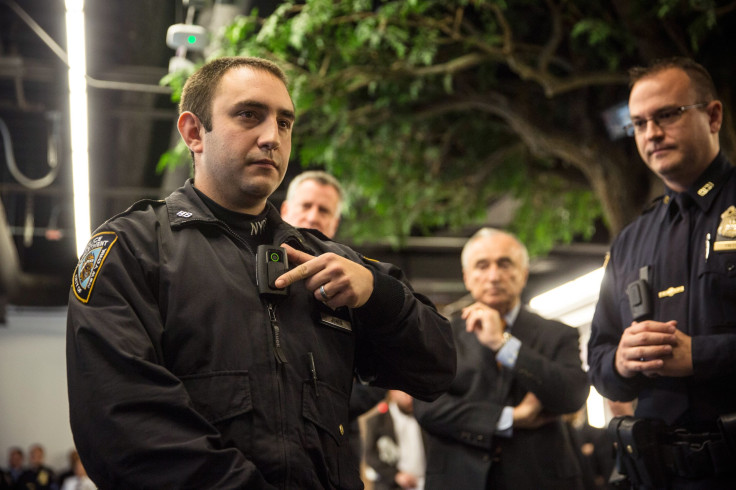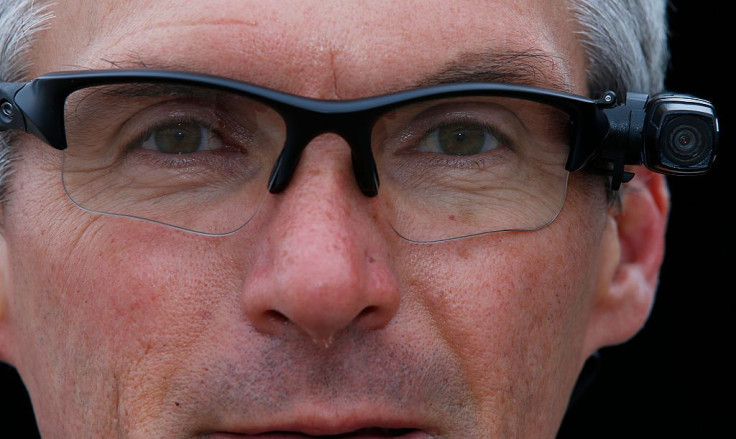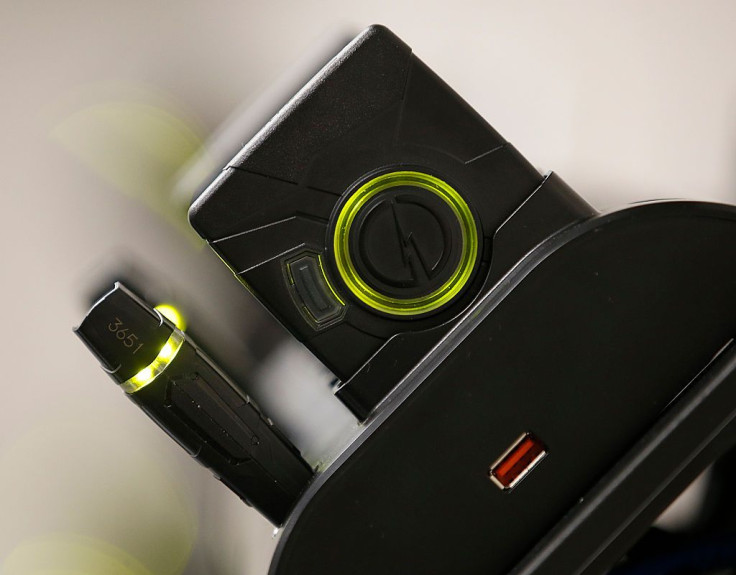Police Departments Face A Crucial Question: How To Pay For Body Cameras?

LOS ANGELES — In cities across the United States, there is a fierce debate brewing among police chiefs, mayors and city council members over police body cameras — not so much about whether officers should wear them, but how, exactly, to find the money to pay for them.
After all, the cameras aren’t cheap. They range in price from $300 to $800 per officer, and can cost hundreds of thousands more in monthly video storage costs spread over time. In San Diego, for instance, the police department recently purchased cameras for about $500 each, but will spend $1,495 per year, per unit, for video storage costs. In some cities, police chiefs have refused to buy the cameras, simply because they couldn't find room in their budgets.
In fact, the country's priciest police body camera contract, in Los Angeles, is currently under review. In December 2014, Mayor Eric Garcetti announced a radical plan to outfit 7,000 Los Angeles police officers with police body cameras. However, as of last week, officers in Los Angeles still don’t have body cameras. Why? Largely because of the $57.6 million price tag, spread out over five years, which has given at least once city councilman “sticker shock.”
In late April, the Los Angeles City Council delayed the vote on police body cameras (once again) in order to go back to and rebid the contract to several body camera manufacturers in the hopes of finding some cost savings. A new vote is expected in the coming weeks.

Garcetti, like many local and state politicians around the country, proposed the use of body cameras following national protests over the August 2014 police killing of Michael Brown in Ferguson, Missouri. Not surprisingly, the mayor held the belief that body cameras would help alleviate tensions between the residents of his city and the LAPD. "The trust between a community and its police department can be eroded in a single moment," Garcetti said at the time. "Trust is built on transparency."
This sentiment fueled the current boom in police body cameras. Approximately 4,000 police departments (about one-fourth of the country's total) have purchased body cameras, according to the American Civil Liberties Union. But despite federal grants to alleviate the expense, police chiefs and mayors repeatedly cite cost as the most pressing barrier to implementing body camera programs. In other words, it’s not public policy, it’s money. In fact, a recent Department of Justice survey found that of the police departments in the country that don't use body cameras, 39 percent cite cost as the biggest barrier.
Then-Chief Roberto Villaseñor of Tucson, Arizona, said in the 2014 federal report that body cameras are simply too expensive for his department: “In recent years, we’ve faced serious budget cuts and have had to reduce staffing levels. It can be hard to justify spending money on cameras when officers are fighting for their jobs.”
Still, because body cameras have gained so much popularity, especially with legislators, many states have enacted police body camera legislation. According to the National Conference of State Legislatures, 23 states have adopted laws concerning police body cameras. Those laws don’t necessarily force municipalities to buy cameras; rather, they create regulations that govern their usage if and when they are implemented. State legislation, however, doesn’t always keep up with the realities of local municipal budgets.

For example, in March 2016, Gov. Rick Scott of Florida signed a bill governing the use of police body cameras. But the measure may have put the cart before the horse, because some departments in the state can’t afford the technology. In Clearwater, for instance, officials recently rejected a plan to buy 170 police body cameras at a one-time cost of $102,000 and a recurring annual cost of $235,000. “The implementation of this program hardly makes financial sense,” the Pinellas County report stated.
In South Carolina, Gov. Nikki Haley became the first to implement a statewide mandate for police body cameras in June 2015, after the police killing of an unarmed black man in North Charleston. Despite a pledge of $22 million in state funding, many municipalities struggled to finance the new expense. The Chester County Sheriff’s Office, for instance, outfitted about 20 officers at a cost of $16,000, but then struggled with the monthly upkeep. “Right now, we just don’t have the budget to replace those that are broken and to outfit all the officers,” Chief Deputy Robert Sprouse told the Herald of Rock Hill. “The big thing is storage issues. They do take up a lot of storage." He added that his department is “dead in the water” on body camera funding, according to the paper.
There is, of course, the argument that police body cameras save money for municipalities in the long run. That’s because, theoretically, cameras lead to fewer use-of-force complaints, and thus fewer lawsuits. “If there is a lawsuit against the department, the settlements come from the department’s operational budget,” Chief Mike Chitwood of Daytona Beach, Florida, said in a recent federal government survey. “By preventing these suits, the department has more money to spend on cars, technology, and other things that benefit officers.”
Many of the cities that have purchased body cameras have done so by applying for federal grants to alleviate the costs. The Department of Justice said that by September 2015, it had awarded more than $23 million in funding for body cameras in 32 states. But often, grant money doesn’t cover the full expense.
Consequently, local officials have resorted to creative ways to fund their body camera budgets.
Philadelphia’s mayor, for instance, has suggested a 3-cent surcharge on sugary drinks to help fund body cameras. In Dallas, lawmakers have proposed using forfeiture funds to pay for body cameras. And in New Jersey, lawmakers crafted a bill to outfit officers with cameras, and enacted a $25 surcharge on drunk drivers to help fund the program. But in April, that bill was ruled unconstitutional, specifically because it created an “unconstitutional financial burden on local governments.”
“State legislators like to pass laws requiring municipalities to do things,” wrote the editorial board of the Asbury Park Press on April 28. “They also don’t bother much thinking about the local costs.”
© Copyright IBTimes 2024. All rights reserved.





















